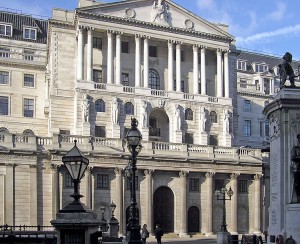Digital currency could hurt commercial banks, warns Bank of England official
Switching to a digital version of the British pound could affect banks, investment and economic growth, says Bank of England (BoE) Deputy Governor Ben Broadbent.
Responsible for monetary policy at the BoE, Broadbent warned that a digital version of the pound could “impair” the ability of banks to make loans, reported The Telegraph.
In a speech delivered this week at the London School of Economics, Broadbent stated that “if bank lending become scarcer, or more expensive, it’s likely that investment and economic activity would suffer.”
The Telegraph reported Broadbent admitted that a transition of digital cash could hamper the operation of private lenders.
“The aim would be to be to widen access to the central bank’s balance sheet, beyond commercial banks,” said Broadbent, who suggests that savers who currently make deposits at high street lenders would be able to retain their money at the BoE itself in the future.
But Broadbent warned that a movement of cash from commercial banks to the BoE could cause problems. “Taking deposits away from banks could impair their ability to make loans,” he said, as reported by The Telegraph.
According to Bloomberg, Broadbent said that as the central bank beefs up research into digital money, officials have “a lot more thinking to do” on the matter.
“Some suggest that central banks will have to issue their own digital currency – i.e. to supply central bank money more widely, via some generalized distributed ledger – to meet a ‘competitive threat’ from private-sector rivals,” Broadbent said, as reported by Bloomberg. “I suspect a more important issue for central banks considering such a move will be what it might mean for the funding of banks and the supply of credit.”
Broadbent said that while clearing payments using distributed ledger technology rather than a central bank will probably not have considerable macroeconomic effects, how the technology is employed to widen access to the BoE’s balance sheet will be key. He said that a distributive ledger replacing the current system of clearing and settling securities could save some of the $54 billion spent annually on such services.
Despite the issues Broadbent has raised, he believes digital currencies such as bitcoin will not replace more established currencies like the dollar, pound and euro.
“Almost always, these currency substitutions occur only once the existing currency has become deeply compromised,” Broadbent said, as reported by Bloomberg. “Even then, the thing people naturally reach for is an existing, trusted currency – often the US dollar – rather than some entirely new unit of account.”
Image credit – Public domain image by Adrian Pingstone













